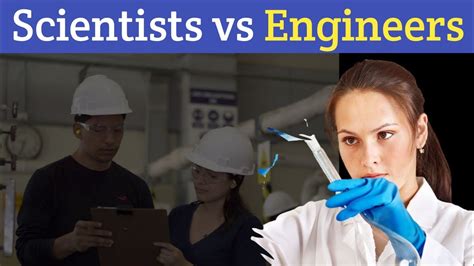Introduction
The fields of engineering and physics often overlap, but there are also key differences between the two disciplines. Engineers apply scientific principles to design and build things, while physicists study the fundamental laws of nature. This article will explore the differences between engineering and physics, including their respective roles in society, the skills required to succeed in each field, and the career paths available to professionals in both disciplines.

Roles in Society
Engineers play a vital role in society by designing and building the infrastructure that we rely on every day, such as roads, bridges, buildings, and power plants. They also develop new technologies that improve our lives, such as computers, medical devices, and transportation systems.
Physicists, on the other hand, study the fundamental laws of nature, such as the laws of motion, thermodynamics, and electromagnetism. Their research helps us to understand the universe and how it works. Physicists also develop new technologies that are based on their understanding of physics, such as lasers, nuclear power, and particle accelerators.
Skills Required
Engineers need to have a strong understanding of mathematics, science, and engineering principles. They also need to be able to design and build things, work in a team, and communicate effectively.
Physicists need to have a strong understanding of mathematics and physics. They also need to be able to conduct experiments, analyze data, and solve problems. Physicists typically work in research laboratories or universities.
Career Paths
Engineers can work in a variety of industries, including construction, manufacturing, transportation, and energy. They can also work in government agencies or research laboratories.
Physicists can work in research laboratories, universities, or government agencies. They can also work in industry, developing new technologies or products.
Conclusion
Engineering and physics are two closely related fields that play vital roles in society. Engineers design and build the infrastructure that we rely on every day, while physicists study the fundamental laws of nature and develop new technologies. Both disciplines require strong skills in mathematics and science, but they also have unique challenges and rewards.
Engineer vs Physicist: A Comparative Table
| Characteristic | Engineer | Physicist |
|---|---|---|
| Focus | Designing and building things | Studying the fundamental laws of nature |
| Skills | Mathematics, science, engineering principles, design, teamwork, communication | Mathematics, physics, experimentation, data analysis, problem-solving |
| Career Paths | Construction, manufacturing, transportation, energy, government agencies, research laboratories | Research laboratories, universities, government agencies, industry |
| Societal Role | Design and build infrastructure, develop new technologies | Study the fundamental laws of nature, develop new technologies |
Engineer vs Physicist: Pros and Cons
Pros of Being an Engineer
- High demand for engineers in a variety of industries
- Good salaries and benefits
- Opportunity to make a real difference in the world
- Can work in a team or independently
Cons of Being an Engineer
- Long hours and deadlines
- Can be stressful
- May require travel
- Can be difficult to advance without a graduate degree
Pros of Being a Physicist
- Opportunity to study the fundamental laws of nature
- Can work in research laboratories, universities, or government agencies
- Can develop new technologies that have the potential to change the world
- Can work independently or in a team
Cons of Being a Physicist
- Long hours and deadlines
- Can be stressful
- May require travel
- Can be difficult to advance without a PhD
FAQs
-
What is the difference between an engineer and a physicist?
Engineers apply scientific principles to design and build things, while physicists study the fundamental laws of nature. -
What are the skills required to be an engineer or a physicist?
Engineers need to have a strong understanding of mathematics, science, and engineering principles. Physicists need to have a strong understanding of mathematics and physics. -
What are the career paths available to engineers and physicists?
Engineers can work in a variety of industries, including construction, manufacturing, transportation, and energy. Physicists can work in research laboratories, universities, or government agencies. -
What are the pros and cons of being an engineer or a physicist?
The pros of being an engineer include high demand, good salaries, and the opportunity to make a real difference in the world. The cons include long hours, stress, and travel. The pros of being a physicist include the opportunity to study the fundamental laws of nature and develop new technologies. The cons include long hours, stress, and travel. -
How can I become an engineer or a physicist?
To become an engineer, you typically need a bachelor’s degree in engineering. To become a physicist, you typically need a bachelor’s degree in physics. -
What is the job outlook for engineers and physicists?
The job outlook for engineers and physicists is expected to be good over the next decade. -
What are some of the challenges facing engineers and physicists?
Some of the challenges facing engineers and physicists include the need to develop new technologies to address global challenges such as climate change and energy security. -
What are some of the exciting new developments in engineering and physics?
Some of the exciting new developments in engineering and physics include the development of new materials, the use of artificial intelligence in engineering and physics, and the exploration of new energy sources.
